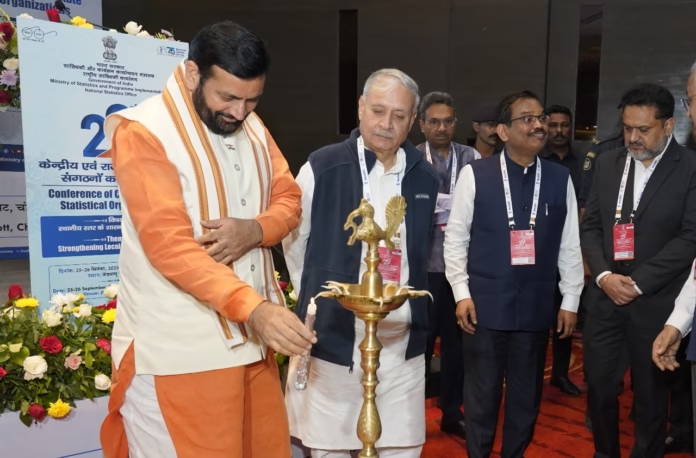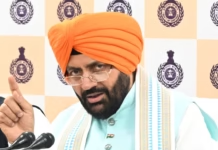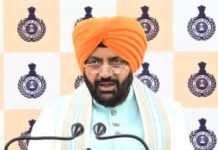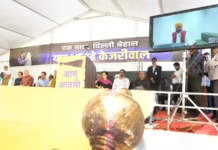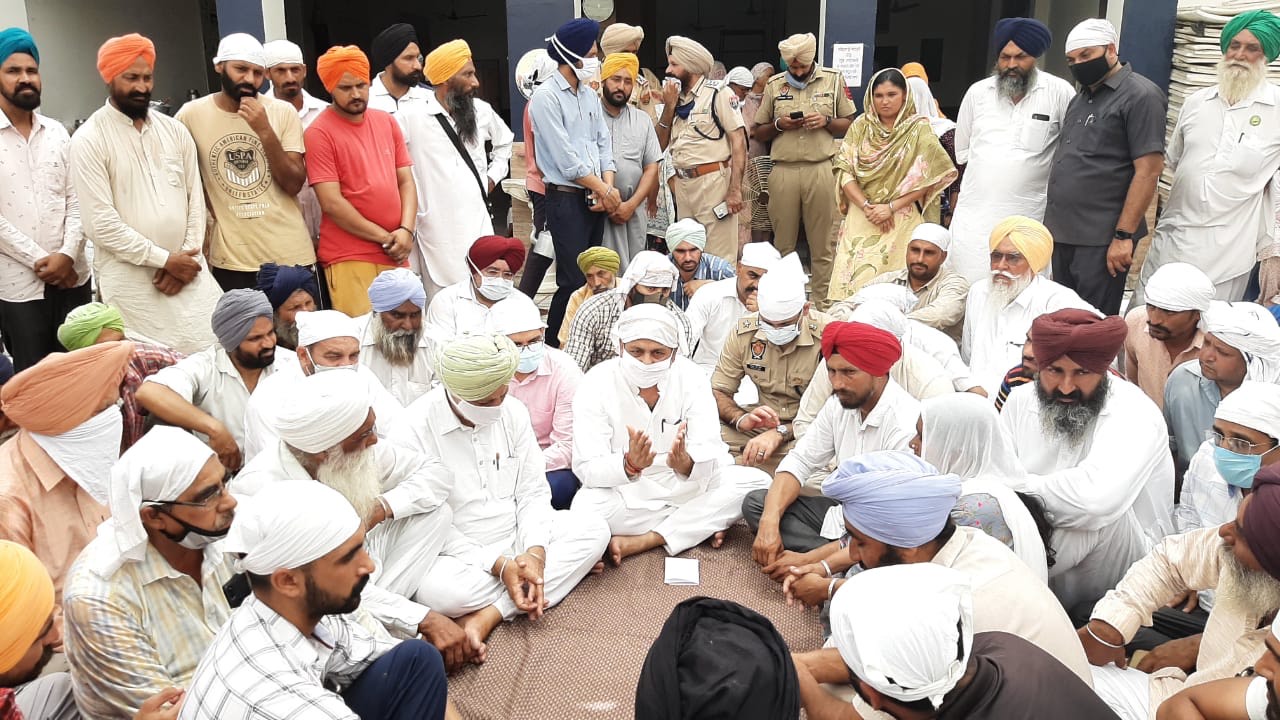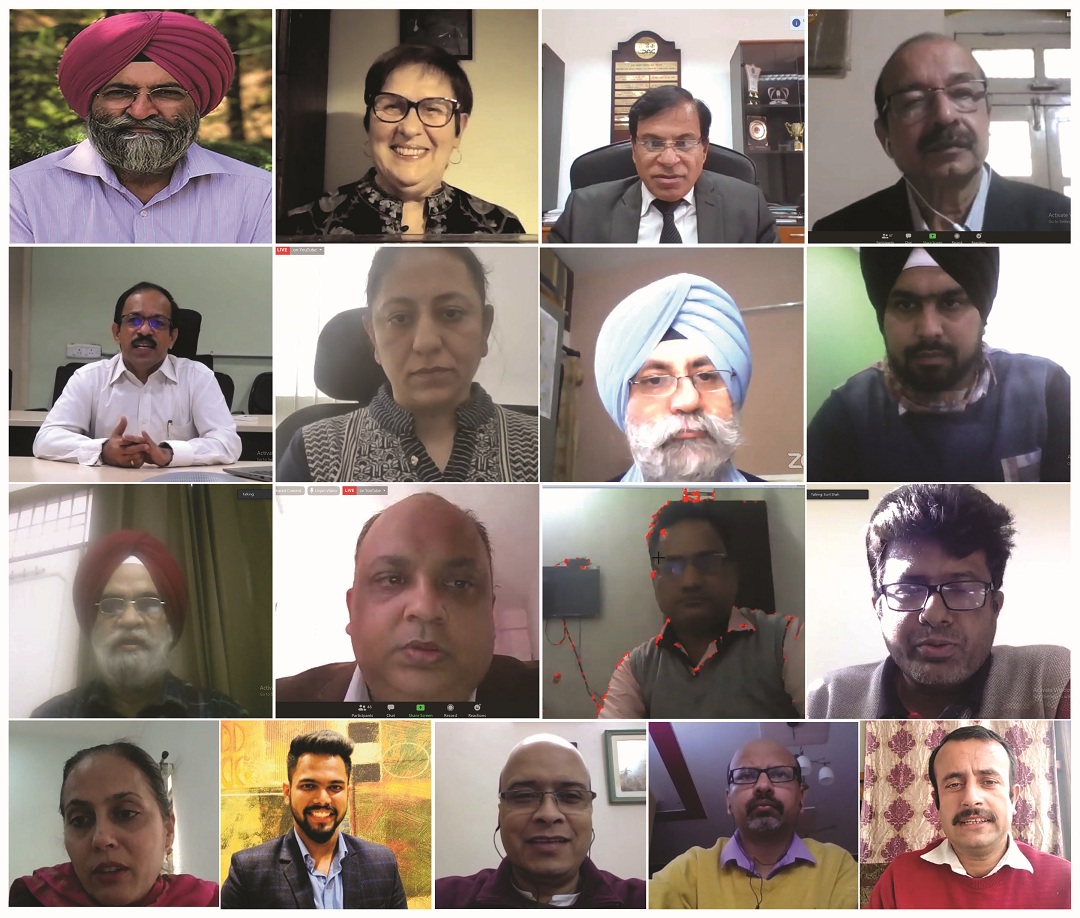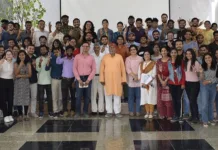‘Strengthening Local Level Governance’- Conference of Central and State Statistical Organizations inaugurated in Chandigarh
Kanwar Inder Singh/ royalpatiala.in News/ September 25,2025
The Ministry of Statistics and Programme Implementation (MoSPI) is organizing the 29th Conference of Central and State Statistical Organizations (CoCSSO) on 25th and 26th September, 2025 at Chandigarh.
The conference serves as a major forum for coordination between Central and State Statistical Agencies, with the objective of ensuring reliable, timely, and credible statistics for planners, policymakers, and the public to support evidence-based decision-making. COCSSO has played an important role in strengthening Centre–State coordination since 1971.
The theme of this year’s COCSSO is ‘Strengthening Local Level Governance’. The conference has brought together around 350 participants from more than 30 States/ UTs Departments [Planning, DES & Statistical Organizations]; Central Ministries/ Departments, experts from various other national & international organizations such as Indian Statistical Institute (ISI), Indian Agricultural Statistics Research Institute (IASRI), Indian Council of Agricultural Research (ICAR), international organisations such as World Bank, UN agencies and other stakeholders to deliberate on strengthening statistical systems for evidence-based governance and achieving the vision of Viksit Bharat.
The 29th COCSSO was graced by distinguished dignitaries including Nayab Singh Saini, Chief Minister of Haryana; Rao Inderjit Singh, Union Minister of State (Independent Charge) of the MoSPI, Ministry of Planning and the Ministry of Culture and Bhawani Singh Pathania, Deputy Chairman, State Planning Board, Govt. of Himachal Pradesh. Dr. Saurabh Garg, Secretary, MoSPI; Anurag Rastogi, Chief Secretary, Govt. of Haryana, and K. A. P. Sinha, Chief Secretary, Govt. of Punjab, set the context for the conference through their addresses in the inaugural session.
Nayab Singh Saini, Chief Minister of Haryana, in his inaugural address, highlighted the pivotal role of data in effective governance and nation-building, citing examples from Haryana’s data-driven initiatives for targeted service delivery, transparency, and citizen welfare. Highlighting the need for strong collaboration between Centre and States, he stated- “Government is incomplete without data – any scheme is effective only when it is backed by reliable statistics”. He further emphasized that “Harnessing technology, AI and modern statistical tools will be key to realizing India’s vision of Viksit Bharat 2047.”
Union Minister of State, Rao Inderjit Singh, emphasized that strong local governance begins with strong local data, as statistics translate community needs into concrete plans. “With rising demand for timely, reliable, and disaggregated data, statisticians play a vital role in ensuring accurate interpretation and evidence-based decision-making”, he said. Further, the Minister emphasized that good governance at the local level requires granular, credible data to guide planning, track progress, and enable course correction, making the strengthening of local statistical systems inseparable from effective local governance.
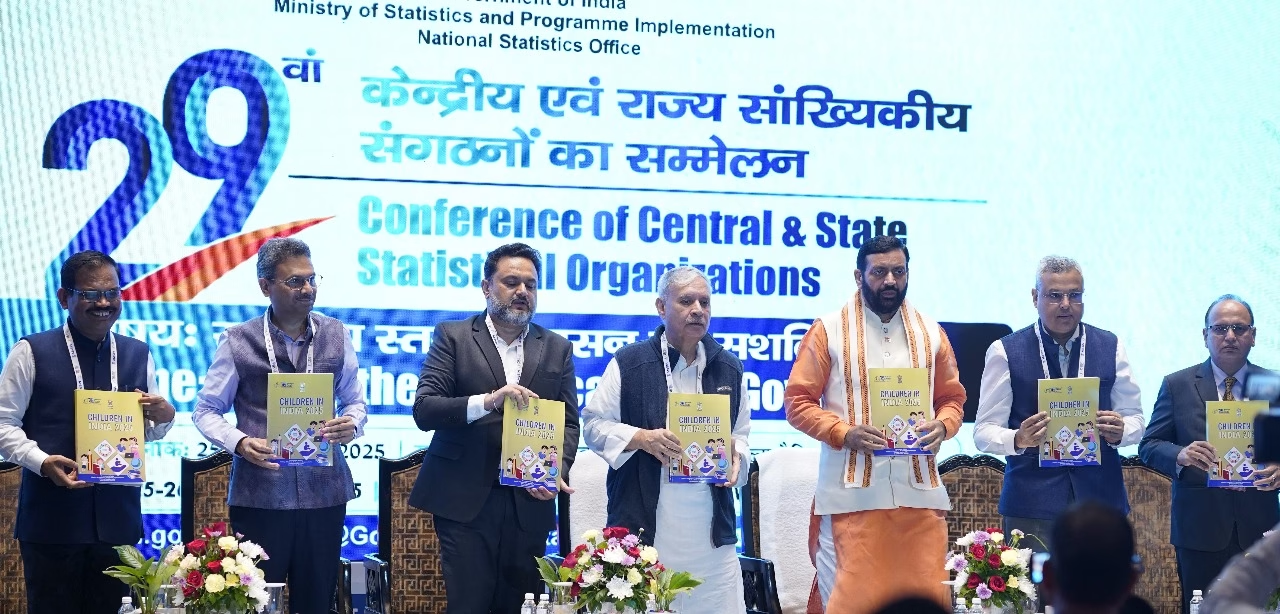
Bhawani Singh Pathania, Deputy Chairman, State Planning Board, Himachal Pradesh, highlighted the importance of decentralized, high-quality data for effective planning, the empowerment of local governments via the 73rd and 74th Amendments, and MoSPI initiatives like the PAIMANA Dashboard and Environmental Accounting on Forests – 2025. He also praised Himachal Pradesh’s 68.16% forest cover and robust accounting system, providing a model for sustainable resource management and evidence-based planning.
Further, in his inaugural speech, Dr Saurabh Garg, Secretary, MoSPI, emphasized the pivotal role of statistical professionals in using data as a strategic tool for governance, planning, and inclusive growth. He highlighted Hon’ble PM’s call on Civil Services Day for data-driven decision-making to ensure accurate policy design. He also emphasized that to achieve strengthened national statistical system, the center and the states should focus on three key aspects – regularity of data by improving frequency of collection and timeliness of dissemination, improving granularity of data with focus on district-level data and working on data harmonization so that the data is comparable at national and international levels.
Chief Secretary of Punjab, K.A.P. Sinha, appreciated the conduct of such a conference as a significant endeavour towards strengthening state statistical systems. He emphasized that accurate data is essential for effective policy implementation and evaluation and praised the employment and unemployment survey as a key district-level initiative.
On the occasion of the inaugural session of COCSSO, MoSPI released its publications “Children in India 2025” and “Environmental Accounting on Forest – 2025”, offering valuable insights for evidence-based policymaking on child development and environmental resources.
The event also marked the launch of MoSPI’s revamped website and the iOS version of the GoIStats mobile app, bringing India’s official statistics closer to citizens. In line with digital innovation being undertaken at MoSPI, the PAIMANA portal was introduced for enhanced monitoring of Central Sector Infrastructure Projects, while the NMDS 2.0 metadata portal, aligned with international standards, provides a unified repository of metadata from all Ministries and Departments.
The two-day COCSSO will feature technical sessions focused on strengthening local-level governance and advancing the Indian Statistical System. Day 1 will cover key initiatives such as state-level statistical capacity building, infrastructure development, and innovative data management practices, while Day 2 will focus on sub-national monitoring of the Sustainable Development Goals, data harmonization, and collaborative approaches to enhance State statistical systems. The 29th COCSSO will conclude on 26th September 2025.

